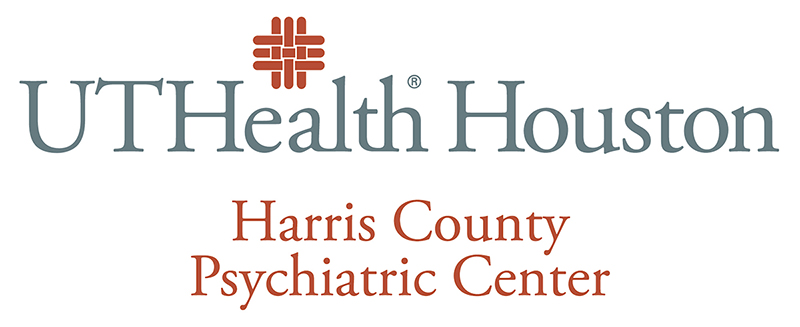UTHealth Houston Harris County Psychiatric Center
Late-life Mental Health
Aging and Mental Health • Late-Life Mental Health Afflictions • Living with Late-Life Mental Illness • How Family and Friends Can Help
Having sound mental health as an adult does not make a person immune from psychiatric problems later in life. Elderly individuals can also suffer from mental illness. Fortunately, these disorders can usually be diagnosed and treated successfully; few elderly people, however, actually seek help. Many older people simply do not understand mental illnesses; some deny there is a problem; others are ashamed of their problem; yet others simply dismiss it as a result of getting older. However, proper treatment and care can reduce or eliminate the symptoms, returning people to functioning, happier lives.
Aging and Mental Health
Aging is a complex physical, mental, social and spiritual process. It affects each individual differently. Some people remain alert and active well into their 90's. Others seem old in every way as early as their 60's. Some factors that influence the attitudes and behaviors of older people include:
*Personality
*Physical, mental and emotional health
*Intellectual functioning
*Economic and environmental limitations
*Family relationships
*Inner motivation
These factors ultimately affect an older person's overall mental health, causing or complicating one of several mental disorders.
Late-Life Mental Afflictions
Some common mental disorders that afflict elderly people include:
Depression
Depression is a very common mental disorder. It is often mistaken for "the blues" and therefore goes untreated. Depression is caused by a number of factors, from chemical imbalances to environmental influences. There are different forms of depression, some mild, others more severe. A person with depression will likely display one or more of the following behaviors:
* Feelings of worthlessness, hopelessness, helplessness, total indifference and/or extreme guilt
* Prolonged sadness; unexplained crying spells
* Jumpiness or irritability
* Withdrawal from formerly enjoyable activities or relationships
* Inability to concentrate or remember details; indecisiveness
* Noticeable change in appetite with sudden weight loss or gain
* Changes in sleep patterns: constant fatigue, insomnia, early waking, oversleeping
* Physical ailments that cannot be explained otherwise
* Thoughts of death or suicide attempts
Dementia
Dementia is a disorder marked by memory impairment and intellectual decline and changes in comprehension and judgment, language, recognition, behavior and personality. While these symptoms are sometimes thought of as typical signs of growing old, in reality they reflect underlying illnesses. Only a small portion of the aging population, roughly 10 percent, suffers from dementia.
Some conditions that cause dementia include: Alzheimer's disease, stroke, brain infections and tumors, Parkinson's or Huntington's disease, depression, nutritional disorders, excessive medication, and alcoholism.
Some of these conditions associated with dementia are not progressive; they can be stopped or even reversed. It is therefore important that a physician complete a thorough dementia evaluation.
Alzheimer's Disease
Alzheimer's disease, a leading cause of death in America, is a form of dementia. It is a disease that causes brain cells to die, often beginning in a part of the brain that controls memory. As it spreads, it affects a growing number of intellectual, emotional and behavioral abilities.
Alzheimer's disease usually appears slowly and gradually. The first symptoms include loss of recent, short-term memory and mild personality changes, such as mild apathy or social withdrawal. As the disease progresses, patients have trouble with abstract thinking, handling money or other personal affairs, understanding what they are reading or organizing their days. They may also become irritable, troubled and less neat in appearance. In the late stages, patients become seriously confused and disoriented, show significant personality and emotional changes, develop incontinence and ultimately become unable to care for themselves.
Scientists have been unable to pinpoint the exact cause of Alzheimer's disease, but they are routinely learning more and more about this devastating illness. Although Alzheimer's itself cannot be cured, there are significant treatments to help control the symptoms.
Living with Late-Life Mental Illness
Because of late-life health conditions, elderly people are more likely to require a variety of medications. These medications can interact with each other in a negative way, sometimes compounded by alcohol use or abuse. Furthermore, the illness for which these medications are used can result in symptoms that resemble certain mental illnesses.
It is important that elderly people be aware of their medications and overall physical health status and work closely with their physicians to find regimens that are safe and effective.
How Family and Friends Can Help
Reaching elder years can bring about changes - physical, mental, emotional and social - that can affect one's life. Many are not ready to accept this change, and it can therefore be a difficult experience. Family and friends can help by offering emotional support - understanding, patience, affection and encouragement.
Family and friends can also help by becoming involved in their loved one's mental and physical well-being. This may involve encouraging him or her to seek or to stay with treatment, going with the patient to the doctor, or even monitoring whether the patient is taking medication.
Caring for an elderly person can be demanding, stressful and emotionally taxing on family and friends. Many organizations are dedicated to providing support for these people as well.


